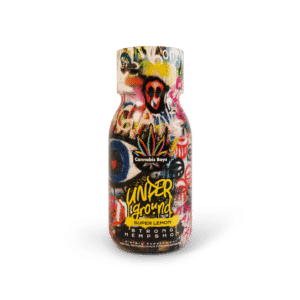Hedgehog soprano, also known as Hericium erinaceus or lion's mane mushroom, is a true gem among medicinal mushrooms. Its unique appearance and wealth of medicinal uses have made it prized for its health-promoting properties for centuries. In this article, we will take a closer look at this remarkable plant, its characteristics, properties and potential health and wellness benefits.
What is the Hedgehog Soplum?
Hedgehog soplolly is a fungus belonging to the soplolly family, which can be found on deciduous and coniferous trees in Asia and Europe. It is characterized by an unusual appearance - it has a spherical hat covered with spikes or "bangs" that resemble a lion's mane, hence its name.
Occurrence and habitat
The coneflower soplolly prefers shady, moist forests, but can also grow on dead wood or live trees, which are its primary food source. The fungus is often found in Japan and China, but populations are also found in Europe, including Poland.
Properties of Sophora Hedgehog - The Power of Nature Within Your Reach
Hedgehog soprano, also known as Hericium erinaceus or lion's mane mushroom, is a fascinating organism that has attracted the attention of scientists and nature lovers alike for centuries. Its unusual appearance and abundance of active ingredients make this mushroom prized for its versatile health properties. In this article, we will discover what benefits the use of coneflower can bring and why it deserves to be called the "king of mushrooms."
Hedgehog soplolly is a fruiting body that grows on the dead wood of deciduous trees, such as oaks and maples. It is characterized by dense, spiky pores that resemble hedgehogs, hence its name. This fungus can reach up to 20 centimeters in diameter and grow for many months, providing an abundant harvest.
Active Ingredients of Sophora Hedgehog.
Sophora coneflower contains a number of active ingredients that contribute to its healing properties. Among the most important of these are:
- Polysaccharides (glucans) - responsible for immunomodulatory and anti-inflammatory effects.
- Hericylic acid - a powerful antioxidant that protects cells from oxidative stress.
- Polyphenols - compounds with antioxidant and anticancer properties.
- Beta-glucans - ingredients that support the health of the nervous system and immune system.
Medicinal Properties of Hedgehog Sophora - Natural Elixir of Health
Hedgehog sophora, also known as Hericium erinaceus or lion's mane mushroom, is an unusual organism that has fascinated scientists and healthy lifestyle enthusiasts for centuries. Its unique medicinal properties are due to its rich chemical composition, including the presence of beta-glucan polysaccharides, triterpenoids and other valuable bioactive compounds. Sophora coneflower is considered one of the most promising sources of natural medicine. In this article, we will take a closer look at what health benefits we can derive from this remarkable mushroom.
Chemical Composition of Hedgehog Soplum
Sophora coneflower is rich in a variety of active ingredients that contribute to its medicinal properties. Among the most important of these are:
- Polysaccharides beta-glucans - showing immunomodulatory and antioxidant activity.
- Triterpenoids - with anti-inflammatory, anti-cancer and protective properties for the nervous system.
- Inositol - known for its beneficial effects on brain and nervous system function.
- Erinacin - a protein with antibacterial and antiviral properties.
Immunomodulating Properties
One of the most well-documented actions of coneflower is its effect on the immune system. Studies have shown that extracts from this mushroom can stimulate the production of T lymphocytes and NK cells (natural killers), which is key to the body's effective defense against infections and cancer. In addition, thanks to its antioxidant properties, coneflower can protect immune system cells from damage caused by oxidative stress.
Support for the Nervous System
Thanks to the presence of inositol and erinacin, coneflower shows potential in the treatment and prevention of neurodegenerative diseases. Animal studies suggest that extracts from this mushroom may inhibit the development of Alzheimer's disease and other conditions associated with brain aging. In addition, coneflower can support memory and cognitive function, as well as act as an antidepressant and sedative.
Anticancer Activity
A number of studies indicate that components of coneflower can inhibit the growth of cancer cells and stimulate apoptosis (programmed cell death) of these cells. In particular, beta-glucan polysaccharides and triterpenoids have shown anti-cancer effects in breast cancer, colon cancer and other types of cancer.
Support for the Circulatory System
Sophora coneflower may also benefit cardiovascular health. Its constituents, such as beta-glucan polysaccharides, may lower LDL cholesterol and prevent the formation of atherosclerotic plaques in blood vessels. In addition, thanks to its anti-inflammatory effects, coneflower may protect against heart disease and stroke.
Use in Chinese Medicine
Traditional Chinese medicine has used coneflower for thousands of years to treat a variety of ailments. The mushroom is used for immune system problems, as a vital energy (Qi) booster and to improve overall health and well-being.
Dosage and Forms of Use
Sophora coneflower is available in various forms, such as tablets, capsules, powder or liquid extract. The most common recommended dosage is 1 to 3 grams per day. It is important to consult a doctor before starting use, especially if you are taking other medications or have health problems.
Contraindications and Interactions
Although coneflower is generally well tolerated, some people may be allergic to its components. In addition, this mushroom may interact with immunosuppressive and anticancer drugs. People with autoimmune diseases should exercise caution and consult a doctor before starting supplementation.
Sophora coneflower is a remarkable mushroom with scientifically proven medicinal properties. Its use in natural and traditional medicine indicates a wide range of health benefits, from immune system support to potential anti-cancer effects. However, it is worth remembering that supplementation should always be preceded by consultation with a doctor and cannot replace professional medical treatment.
As research on sea urchin continues, we can expect to see more and more evidence of its effectiveness and safety. Without a doubt, this is a promising direction in the search for natural methods to support health and well-being.
The use of Sophora Hedgehog in Medicine
Due to its unique properties, coneflower is used in various fields of medicine:
- Oncology - as a complement to traditional anticancer therapies.
- Immunology - supporting the treatment of people with weakened immune systems.
- Neurology - in the study of neurodegenerative diseases such as Alzheimer's and Parkinson's.
- Geriatrics - supporting the health and well-being of the elderly.
Sophora Hedgehog: A Natural Weapon for Brain and Nervous System Health
Hedgehog soprano, also known as Hericium erinaceus or lion's mane mushroom, is a fascinating organism that has attracted the attention of scientists and healthy lifestyle enthusiasts for centuries. Its unique medicinal properties, particularly regarding support for brain and nervous system health, have made it the subject of intense scientific research.
History and Chemical Composition
Sophora coneflower is a fungus with a rich chemical composition that includes polysaccharides beta-glucans, triterpenoids, sterols and amino acids. Traditionally used in Chinese and Japanese medicine, coneflower is gaining popularity worldwide for its potential health benefits.
Effects on the Nervous System
Research on the effects of coneflower on the nervous system is promising. Here are some key aspects:
Neuroprotection
A number of studies have suggested that the beta-glucans in coneflower have neuroprotective effects. The brain's defense mechanisms may be supported by reducing oxidative and inflammatory stress, which is key in protecting against neurodegenerative diseases such as Alzheimer's and Parkinson's.
Improving Memory and Cognitive Function.
Hedgehog soprano is often studied for its effects on improving memory and cognitive function. Findings indicate that extracts from this mushroom can stimulate neurogenesis (the formation of new neurons) and enhance learning and memory abilities.
Treatment of Mood Disorders
Some studies suggest that coneflower may have potential in treating mood disorders such as depression and anxiety. Mechanisms of action include modulation of levels of neurotransmitters such as serotonin and dopamine, which may help improve mood and reduce symptoms of depression.
Brain Stroke Support
Strokes are one of the leading causes of death and disability worldwide. Studies on coneflower indicate that it can promote regenerative processes after a stroke, which is key to rehabilitating patients and reducing the risk of complications.
Anti-Aging Action
Sophora coneflower may also play a role in counteracting brain aging. Its ability to stimulate the production of neuronal growth factors and increase DNA synthesis may contribute to maintaining the health of nerve cells for a longer period of time.
Safety of Use
Although coneflower seems to be generally safe, like any dietary supplement, it should be used with caution. It's a good idea to consult your doctor before starting supplementation, especially if you are taking other medications or have significant health problems.
Sophora coneflower is a promising fungus with potential effects on brain and nervous system health. Its unique chemical composition and diverse mechanisms of action make it of interest to scientists and natural medicine practitioners around the world. Although further research is needed, the results of studies to date suggest that coneflower may play a significant role in supporting brain health and function.
Hedgehog soprano mushroom is a fascinating example of a natural force that can support our brain and nervous system health. Its potential is promising, and the future of research on this fungus looks promising. Without a doubt, coneflower deserves our attention and further research, which can help improve the quality of life for people around the world.
Hedgehog Sophora: A Natural Ally of the Immune System
Hedgehog soprano (Hericium erinaceus), also known as lion's mane mushroom, is a unique organism that has attracted the attention of researchers and lovers of natural methods of health support for centuries. Its unique medicinal properties include not only support for the nervous system, but also significant effects on immune system function. In this article, we will take a closer look at how coneflower can strengthen our natural defenses against infections and diseases.
Effect of Hedgehog Sophora on the Immune System
The immune system is a key component of our health, protecting the body from infection and disease. Research on coneflower has shown that this fungus can have a significant effect on strengthening this system:
Stimulation of Immune Cell Production
Hedgehog sophora contains active compounds such as hericic acid and erinacin, which can stimulate the production of immune cells, including T and B lymphocytes. This, in turn, can lead the immune system to better recognize and fight pathogens.
Support for NK Lymphocytes
NK lymphocytes (natural killers) are cells that play a key role in the body's defense against cancer and viral infections. Studies suggest that coneflower may increase the activity of these cells, resulting in better protection against disease.
Reducing Inflammation
Although inflammation is the body's natural response to infection and tissue damage, chronic inflammation can lead to many chronic diseases. Sophora coneflower contains anti-inflammatory compounds that can help regulate the immune response and reduce the risk of developing inflammatory diseases.
Improving the Skin Barrier
The skin is the first line of defense against external pathogens. Sophora coneflower can support the skin's barrier function, increasing its resistance to infection and mechanical damage.
Support for the Microbiome
The gut microbiome is crucial to the proper functioning of the immune system. Sophora coneflower can support the balance of the intestinal microbiota, which translates into better immunity.
Antiviral and Antimicrobial Activity
In vitro studies have shown that extracts of coneflower may exhibit antiviral and antimicrobial activity, which may be helpful in fighting infections.
Sophora Hedgehog: Potential Health Benefits
Hedgehog soprano (Hericium erinaceus) is a mushroom that has fascinated researchers for centuries with its unique medicinal properties. Its health benefits range from nervous system support to anti-inflammatory and immunomodulatory effects. In this article, we'll take a closer look at how coneflower can affect our health and why you should consider consuming it regularly.
Support for the Nervous System
Sophora coneflower is rich in polysaccharides that can stimulate the regeneration of nerve cells and neurotransmitters such as dopamine and serotonin. Studies suggest that this mushroom extract may support cognitive function, improve mood and reduce symptoms of depression and anxiety.
Anti-inflammatory effect
Mushrooms, including coneflower, contain anti-inflammatory compounds that can help reduce inflammation in the body. Inflammation is linked to many chronic diseases, such as cancer, diabetes and cardiovascular disease. Thanks to its properties, soplat may help reduce the risk of these conditions.
Modulation of the Immune System
Hedgehog soprano contains substances that can affect the immune system, both by stimulating immune cells and improving the body's protective barrier. This means that regular consumption of this mushroom can support the body's natural defenses against infections and help fight autoimmune diseases.
Support for the Gastrointestinal System
Mushrooms, including coneflower, are rich in probiotics and prebiotics, which can support a healthy gut flora. Proper intestinal microflora is crucial for proper immune function and overall health.
Antioxidant Properties
Sophora coneflower contains numerous antioxidants that help neutralize free radicals and prevent oxidative stress. Free radicals have been linked to aging and the development of degenerative diseases such as Alzheimer's and Parkinson's.
Support for the Circulatory System
Studies indicate the possible benefits of coneflower for cardiovascular health. The mushroom may support healthy cholesterol levels, prevent the formation of blood clots and improve the elasticity of blood vessels.
Potential Benefits in the Fight against Cancer
Although more research is needed, some studies suggest that coneflower may have anticancer effects by inhibiting the growth of cancer cells and stimulating their apoptosis (programmed death).
Availability and Method of Consumption
Sophora coneflower is available in various forms, such as powder, liquid extracts or dried mushrooms. It can be eaten raw, added to food or taken in the form of dietary supplements.
Sophora coneflower is a mushroom with a wide range of potential health benefits. From nervous system support and anti-inflammatory effects, to immune system modulation and antioxidant properties, this mushroom may play a significant role in maintaining good health. While further research is needed to confirm and understand the full range of benefits of coneflower consumption, it is worth considering its regular use as a supplement to a healthy lifestyle.
How to Use Hedgehog Soplum?
Sophora coneflower is available in various forms, such as liquid extracts, capsules or powder. It is advisable to take the appropriate dosage as recommended by the manufacturer or your healthcare practitioner. Keep in mind that it's a good idea to consult your doctor before starting supplementation, especially if you are taking other medications or have chronic diseases.
Safety and Adverse Reactions
Sophora coneflower is generally considered safe, but like any dietary supplement, it can cause side effects. Among the most common are allergic reactions, gastrointestinal problems and interactions with other medications. If any worrisome symptoms occur, discontinue use and consult a doctor.
Sophora coneflower is a unique mushroom that can contribute to health and well-being. Its immunomodulatory, anti-inflammatory, antioxidant and potentially anti-cancer properties make it a valuable addition to the diet of those seeking to maintain good health. However, as with any supplement, a responsible and informed approach to its use is important.
By discovering the power of coneflower, we have a chance to get closer to natural methods of supporting health. However, we should remember that supplementation should be part of a comprehensive lifestyle approach, including a balanced diet, regular physical activity and adequate sleep. Only such a combination can bring lasting benefits to our health and well-being.
Potential health benefits
Scientific studies suggest that coneflower may offer a number of potential health benefits:
- Immune system support - due to the presence of polysaccharides and triterpenes, this mushroom can support the immune system, increasing its response to pathogens.
- Improve cardiovascular health - the ingredients in coneflower can lower cholesterol and blood pressure, which is beneficial for people at risk of heart disease.
- Supporting brain health - Studies indicate the potentially neuro-protective effects of coneflower may support memory and cognitive function.
- Anti-inflammatory and anti-cancer effects - polysaccharides and triterpenes may have anti-inflammatory properties, as well as support the treatment of certain types of cancer.
How to use the Soplum Hedgehog?
1. forms of the Hedgehog Soplum
1.1 Fresh fruit
Fresh soprano mushrooms are the most flavorful and rich in nutrients. They can be added to salads, sandwiches or as an ingredient in soups and main dishes. Their delicate, slightly nutty flavor goes well with a variety of dishes.
1.2 Dried mushrooms
Drying is one of the oldest methods of preserving mushrooms. Dried sea urchin soplings can be stored for a long time, and before consumption, all you need to do is soak them in water and cook them.
1.3 Extracts and supplements
For those looking for a more convenient form of supplementation, soprano coneflower extracts are available in tablet, capsule or liquid form. They contain standardized amounts of the fungus' active ingredients, making it easier to control dosage.
2 Dosage and Storage
2.1 Dosage
Recommended dosages of coneflower may vary depending on the form of supplementation and individual health needs. Usually they are 1-2 grams of extract per day, but it is worth consulting a doctor or nutritionist before starting supplementation.
2.2 Storage
Fresh mushrooms should be stored in the refrigerator, while dried mushrooms and supplements should be kept in a dry, cool place away from sunlight.
3. preparation of the Hedgehog Soplum
3.1 Cleaning and Preparation of Mushrooms
Before preparation, the mushrooms should be thoroughly cleaned of any remaining bark or soil, and then gently rinsed with water. Dried coneflowers require soaking in water for several hours before cooking.
3.2 Cooking and Processing
Hedgehog soplings can be steamed, braised or fried. Their delicate flavor goes well with a variety of additives, such as garlic, onions, herbs or spices. Dried mushrooms can be used to make aromatic teas or added to soups and stews.
4 Contraindications and Interactions
4.1 Contraindications
People who are allergic to mushrooms should avoid using Hedgehog soprano. Pregnant and breastfeeding women, as well as people with chronic diseases, should consult a doctor before starting supplementation.
4.2 Interactions
Sophora coneflower may affect the effects of certain medications, including anticoagulants and immunosuppressants. People taking these medications should exercise caution and consult with their doctor before starting supplementation.
5 Culinary Use
5.1 In Asian cuisine
Hedgehog soprano is a popular ingredient in Far Eastern cuisines, where it is often added to soups, salads and fried dishes. Its delicate flavor goes perfectly with rice, noodles or vegetables.
5.2 In European cuisine
In Europe, coneflower is increasingly being used as a healthy addition to dishes. It can be added to pizza, risotto or even desserts such as cakes and creams.
5.3 In the food industry
Powder from dried sea urchin soplings is used as an ingredient in organic dietary supplements and as an additive to food products such as yogurts and baked goods.
Sophora coneflower is a versatile mushroom that can find use in both natural medicine and cooking. Its potential health benefits, ease of preparation and versatility in application make it increasingly appreciated by healthy lifestyle enthusiasts. However, it is worth remembering the proper dosage and consulting a specialist before starting supplementation, in order to maximize its health-promoting properties.
Cautions and contraindications
Although coneflower is considered safe, in some cases an allergic reaction or skin irritation may occur. It is advisable to consult a doctor before starting supplementation, especially if you are taking medications for chronic diseases or have health problems. Some studies indicate that coneflower may affect blood glucose levels and blood pressure, so people with diabetes or heart disease should be especially cautious.
Summary
Sophora coneflower is an unusual mushroom with many potential health benefits due to its rich chemical composition. Its health-promoting properties have been documented in numerous scientific studies and have been used in traditional medicine for centuries. While coneflower supplementation can be an attractive way to support health, it is important to approach it with caution and consult a doctor.
It is also worth remembering that although coneflower has many promising qualities, it is not a magic panacea for all health ailments. The best results are achieved through a balanced diet, regular physical activity and a proper lifestyle. Hedgehog sopra can be a valuable addition to these activities, but should not replace conventional treatments.








